Coronavirus: Britons in Wuhan to fly home on Friday
- Published
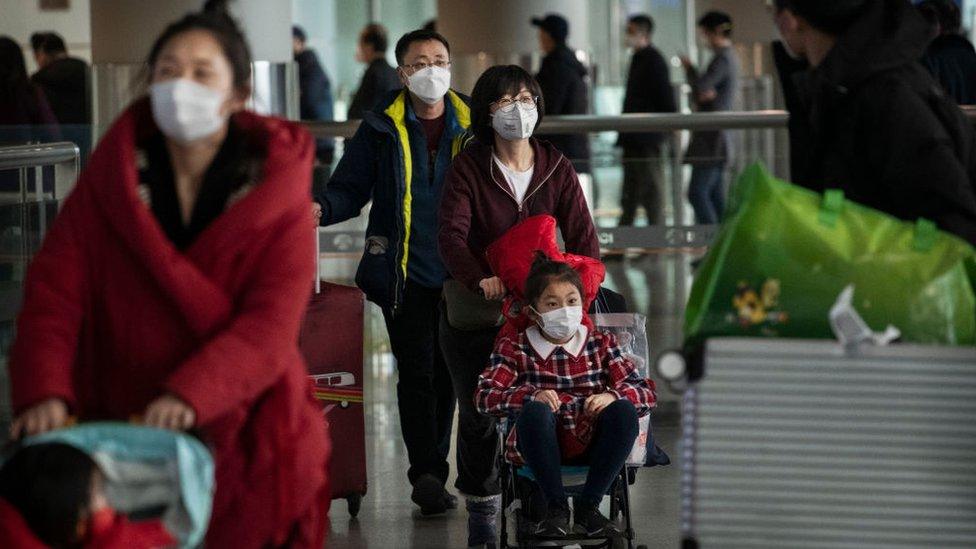
Travel out of China has been severely restricted
British nationals trapped in Wuhan will return home later, Foreign Secretary Dominic Raab has said.
A flight carrying 150 Britons and 50 EU citizens was scheduled to leave China for at 07:00 local time (23:00 GMT Thursday), but it has been delayed.
They will fly to RAF Brize Norton before the UK nationals are quarantined at a centre believed to be Arrowe Park Hospital in the Wirral.
The remaining passengers will then fly to another EU airport.
The World Health Organization (WHO) has declared an international public health emergency over the outbreak.
And the UK's four chief medical officers have said they were raising the risk level from low to moderate.
"This does not mean we think the risk to individuals in the UK has changed at this stage, but that government should plan for all eventualities," a joint statement said.
They added that it was "likely" there would be "individual" cases of coronavirus in the UK.
But they said they were confident the heath services would be able to protect the public and provide high quality care.
So far, the virus has caused 213 deaths in China, where health officials have confirmed 9,692 cases.
Elsewhere, 98 cases have been confirmed across 15 other countries.
As of Wednesday, 161 tests have been carried out, external on people across the UK - all with negative results.
The flight to repatriate UK citizens comes as airline Virgin Atlantic announced it had suspended its flights between Britain and China due to fears about the spread of the virus.
'Supported isolation'
Passengers flying from Wuhan, the centre of the coronavirus outbreak, will be checked by Chinese officials at a handling centre in the airport, then taken to its departure area where they will be met by British officials.
Anyone who is unwell will not be allowed to board the flight, which will have a team of Ministry of Defence medics on board.
Wirral West MP Margaret Greenwood said she was told by the health secretary that the government did not think any of the people being flown back from Wuhan would be carrying the virus.
BBC health editor Hugh Pym said he understood UK passengers would be taken to NHS staff accommodation.
They will be put in "supported isolation" for 14 days with "all necessary medical attention", a Downing Street spokesman said.
The flight had been due to leave Wuhan earlier but was delayed because of a lack of clearance from Chinese authorities.
In a statement, Mr Raab said: "The safety and security of British nationals is our top priority.
"Our embassy in Beijing and consular teams remain in close contact with British nationals in the region to ensure they have the latest information they need."
In other developments:
Downing Street said it was pressing Beijing to allow spouses or partners of UK nationals to be on the Wuhan flight
Scotland's chief medical officer said a case of coronavirus was "highly likely" to be detected in the country in the coming days
British Airways has extended its cancellation of services to mainland China until 29 February. Virgin Atlantic flights between Heathrow and Shanghai are continuing to operate as scheduled
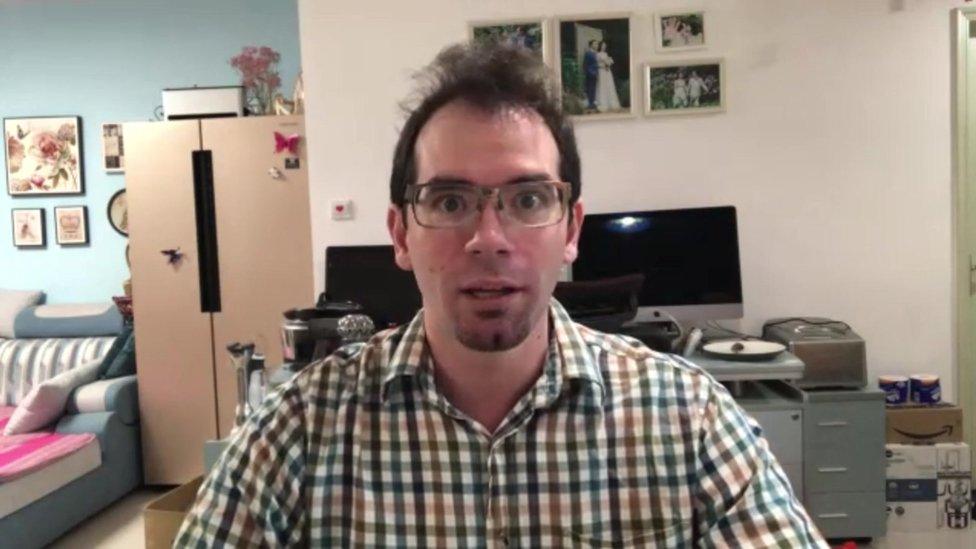
Matt Raw has chosen to stay in Wuhan because his wife has been prevented from travelling
Britons have told of family members with Chinese citizenship being not being permitted to travel by local authorities.
Matt Raw lives in Wuhan with his mother, who has Alzheimer's disease, and his wife - who helps care for her. He told the BBC's Victoria Derbyshire programme his spouse had been prevented from flying so the whole family was staying.
He said they were also concerned about the risks of flying, having seen reports that three Japanese people on evacuation flights were found to have the virus.
Adam Bridgeman said he would stay in Wuhan if his wife and one-month-old son were not allowed to fly with him.
He told BBC Radio 4's Today programme that remaining in Wuhan with a newborn was "a tough situation" as they were "not willing to take the risk" of bringing him to hospital for routine treatment such as vaccinations.
Hundreds of foreign nationals are being evacuated from Wuhan, with Japan, the US and the EU among those repatriating their citizens.
Jeff Siddle's wife will have to stay behind in Wuhan when he leaves with their daughter

How deadly is coronavirus?

It is a basic question, but the answer is elusive.
It is far too simplistic to take the 170 deaths and the 7,711 cases and come up with a death rate of 2%.
We are in the middle of the outbreak and thousands of those patients are still being treated. We don't know if they will live or die, so they can't be used in these calculations.
We also don't know how many mild and undetected cases are out there.
Also, the deadliness of the new virus is only one component of its threat.
Flu kills hundreds of thousands of people each year, not because it is super-deadly, but because it is able to infect so many people.


Learn more about the new virus

Your questions: You asked, we answered
The story explained: How worried should we be?
Wuhan profiled: The city now in lockdown
In detail: Follow all our coverage here
Epidemic v pandemic: What's the difference?

Have you been affected by any of the issues raised? You can share your experience by emailing haveyoursay@bbc.co.uk, external.
Please include a contact number if you are willing to speak to a BBC journalist. You can also contact us in the following ways:
WhatsApp: +44 7756 165803, external
Send pictures/video to yourpics@bbc.co.uk, external
Tweet: @BBC_HaveYourSay, external
Please read our terms & conditions and privacy policy
- Published30 January 2020
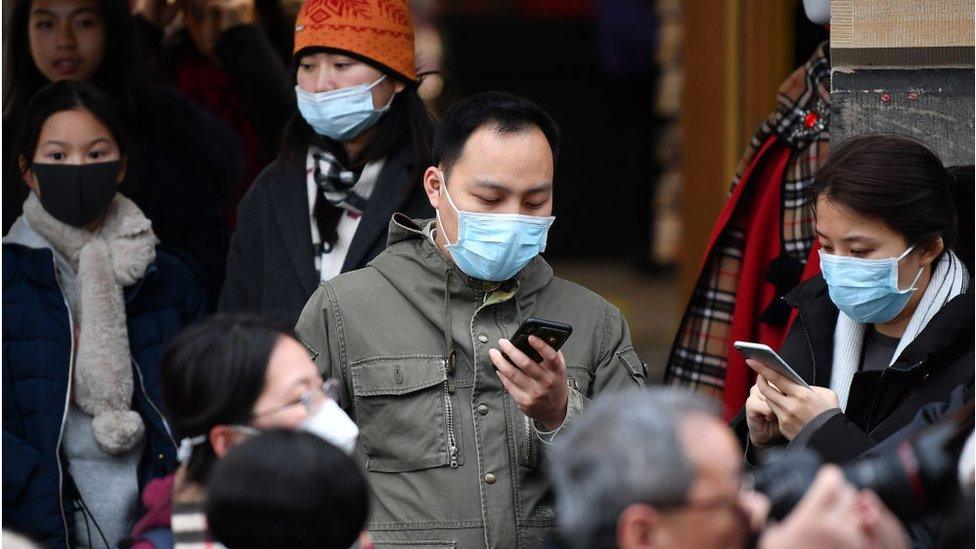
- Published30 January 2020
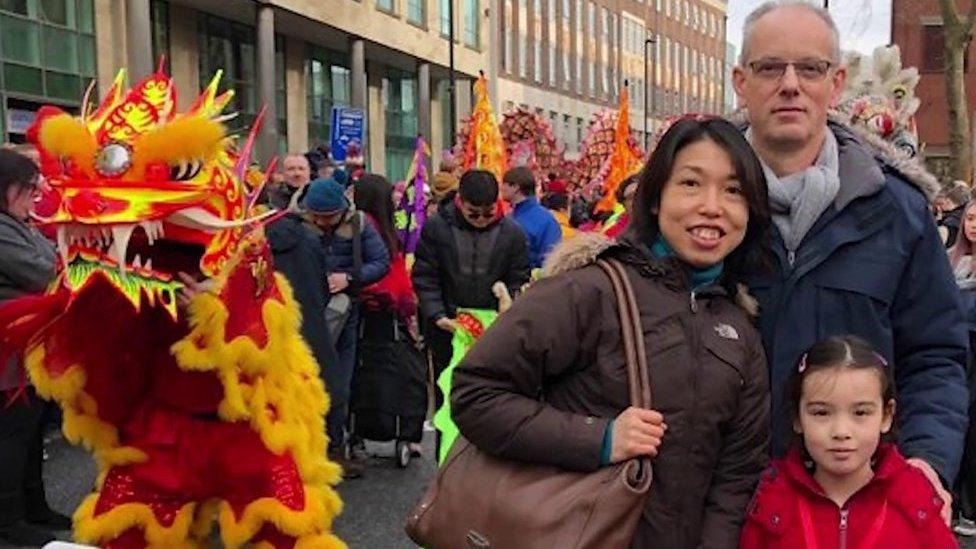
- Published30 January 2020
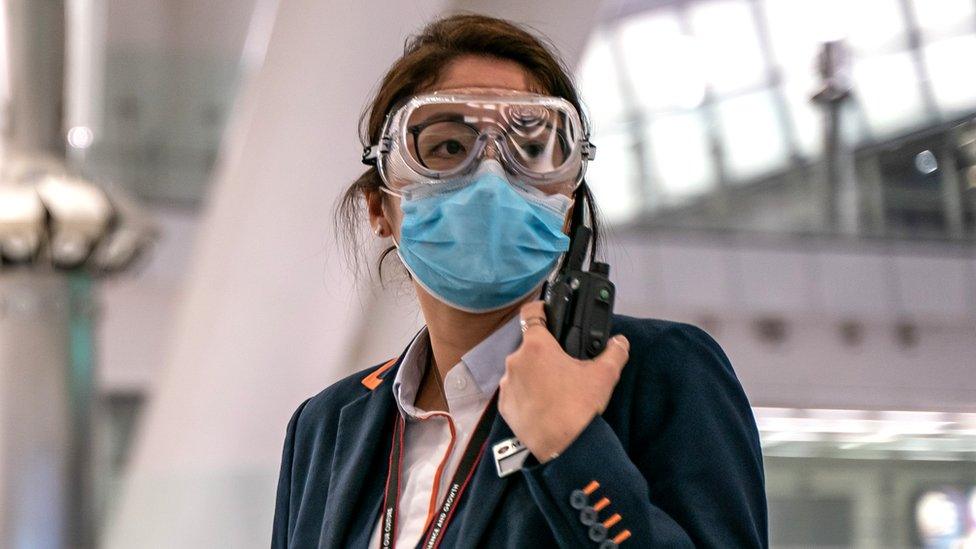
- Published30 January 2020
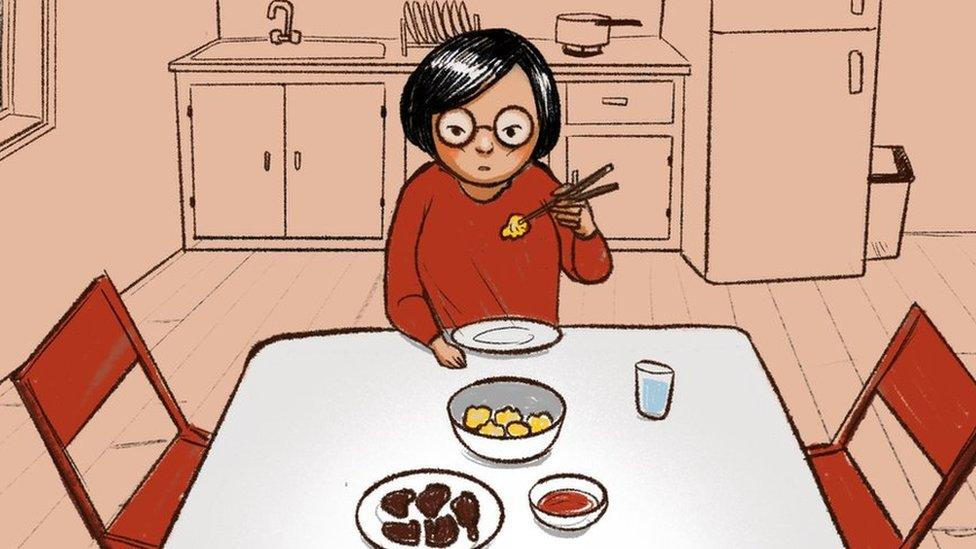
- Published5 July 2022
